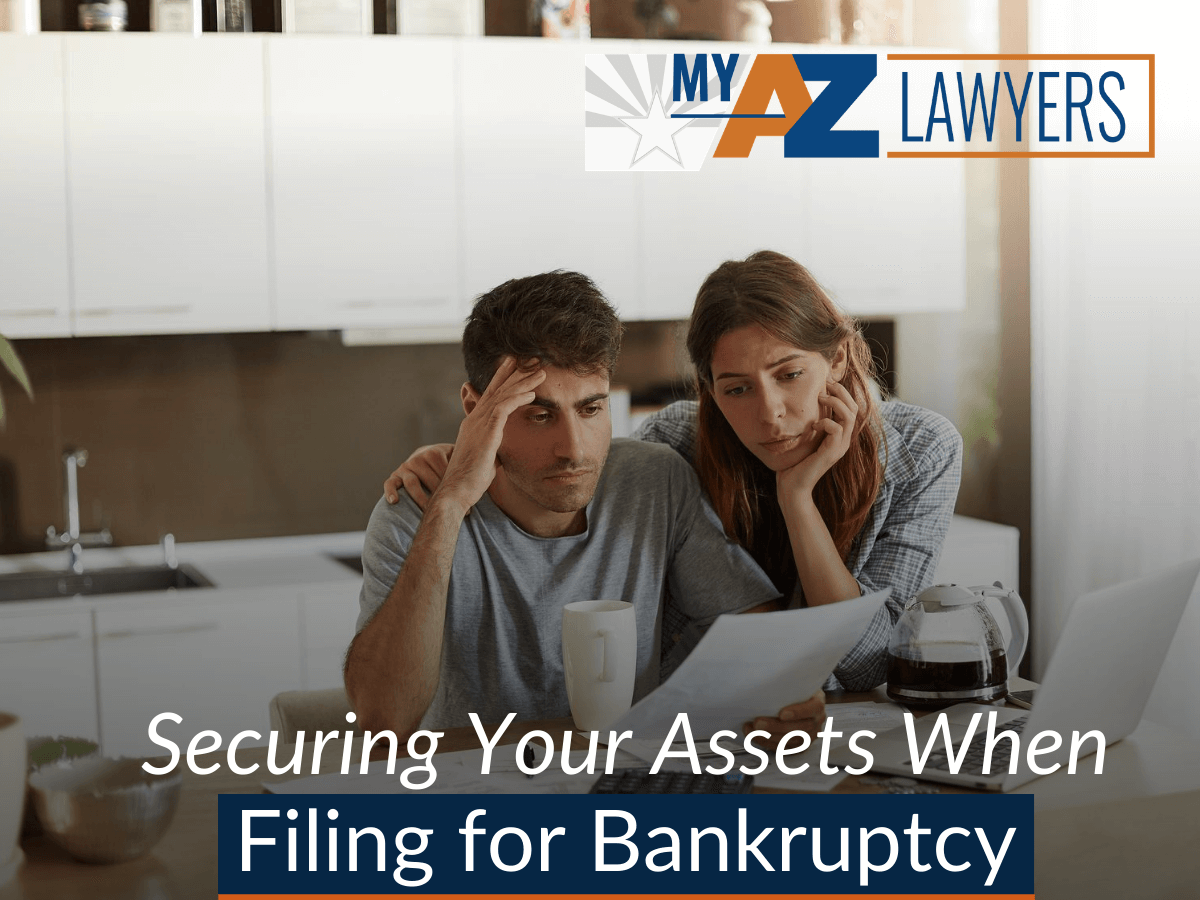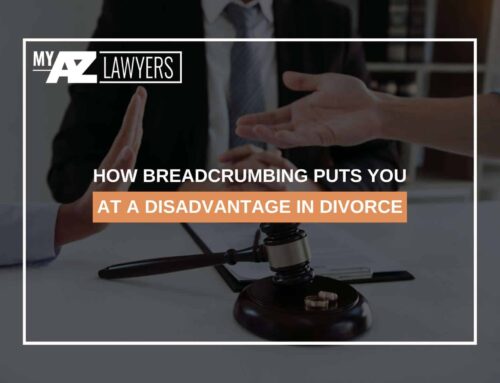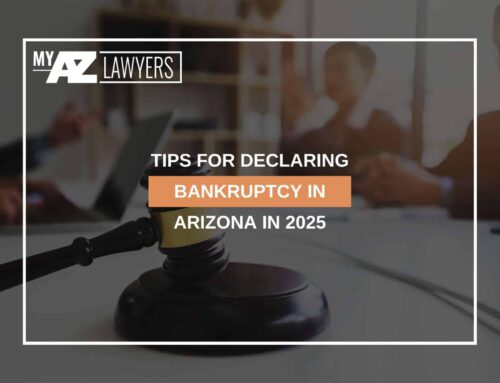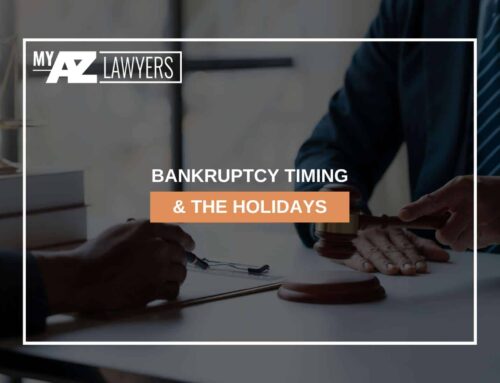Table Of Contents
Securing Your Assets When Filing for Bankruptcy
There are several factors a person should consider before filing for bankruptcy. One of the most important is if one’s assets will be protected throughout the case. States vary on which property debtors filing for bankruptcy are allowed to keep. While filing for bankruptcy can clear thousands of dollars of burdensome debt, the tradeoffs might not be worth it if it causes you to lose your most valuable assets. That is why you need to apply bankruptcy exemptions to make sure this doesn’t happen. When an asset has a bankruptcy exemption applied to it, the trustee can’t seize that asset to sell and contribute towards the bankruptcy estate. 
Start With Which Chapter You’re Filing
The two most common forms of consumer bankruptcy are chapter 7 and chapter 13. Assets are treated differently in chapter 7 and chapter 13, so you should understand what will happen to your property before making the decision of which chapter to file.
Chapter 7 Bankruptcy: The most popular form of bankruptcy, it clears limitless amounts of unsecured non-priority debt, like credit cards and medical bills. However, it does not allow the debtor to keep limitless amounts of assets. Any assets the debtor owns that aren’t protected by bankruptcy exemptions can be sold to pay back their creditors. Unlike some other states, Arizona doesn’t allow debtors the choice between state and federal exemptions, so debtors that file in Arizona have to use Arizona bankruptcy exemptions.
Chapter 13 Bankruptcy: Known as the wage earner’s bankruptcy, this form of bankruptcy reorganizes debt into a payment plan. The payment plan lasts 3 years if the debtor earns less than the household median income for their state, and 5 years if their household income exceeds that number. A chapter 13 plan must pay off fees related to the filing, secured debts, and priority debts, in that order. Unsecured non-priority debts might be cleared without repayment, depending on the debtor’s personal financial situation. Because debts are repaid in chapter 13, the debtor can keep their assets without the threat of seizure and sale by auction of their assets like in chapter 7 bankruptcy.
A debtor must be able to show they are eligible for either chapter of bankruptcy in order to discharge their debts. The biggest factor that impacts bankruptcy eligibility is the debtor’s income. A debtor’s income must be below a certain level to qualify for chapter 7 bankruptcy.
On the other hand, to qualify for chapter 13 bankruptcy, the debtor must be able to demonstrate that they have enough income to pay off the mandatory debts in their plan. When a debtor files a bankruptcy chapter that they don’t qualify for, the most common result is for their case to be dismissed.
When a case is dismissed, the debtor usually has an opportunity to re-file their case under the other chapter, but they will lose the protections of the automatic stay until that occurs. This gives creditors a chance to proceed with collection efforts like lawsuits and repossessions, which have been the whole reason the debtor filed for bankruptcy. To avoid these kinds of concerns, you can have your potential case reviewed by a skilled bankruptcy professional to confirm your eligibility. For your free consultation with a member of My AZ Lawyers, contact us or call 480-470-1504.
File for Chapter 13 Bankruptcy
The Automatic Stay is the bankruptcy mechanism that stops creditors from engaging in collection efforts against the debtor while their case is in good standing. It is triggered by both chapter 7 and chapter 13, so you may be wondering why it could benefit you to file for chapter 13 and pay off your debts rather than clear them with chapter 7.
While the Automatic Stay will hold off a repossession or foreclosure while the case is pending, chapter 7 bankruptcy doesn’t clear secured debts or arrearages. So if a debtor has fallen several months behind on their mortgage and files for bankruptcy to delay the foreclosure sale, the debtor only has the lifespan of the case to catch up on their balance in arrears- typically 3 to 5 months for chapter 7 bankruptcy– or else the creditor can continue with the collection after the bankruptcy case is discharged. In a chapter 13 case, the arrearages will be paid off in the payment plan, and the debtor will be kept up to date on their regular monthly payments, usually leaving the lender with no cause to proceed with foreclosure once the case is complete. But let’s say the debtor is fending off a lawsuit stemming from unpaid credit card debts. Because this is an unsecured debt, it will be cleared by either chapter of bankruptcy. Depending on other factors unique to each debtor, it may be more strategic here to file for chapter 7 bankruptcy. To review your debts to see which form of bankruptcy would be more effective, schedule your free consultation with a member of My AZ Lawyers today by contacting us or calling 480-470-1504.
Bankruptcy Exemptions in Arizona
able lifestyle thanks to state bankruptcy exemptions. Many of the exemptions represent how much equity a debtor can hold in their assets rather than the market value of the asset. For example, if the debtor owns a vehicle worth $5,000 more than Arizona’s motor vehicle exemption but has $10,000 left on the loan, their equity would be within the exemption and safe from the trustee and creditors in a bankruptcy filing. Some of the exemptions seen most often in Arizona bankruptcy filings include:
- Homestead exemption: The homestead exemption has increased in recent years from $150,000 to $400,000. If you keep track of local home prices, that is about enough to buy a 2-bedroom condo or a small house in most Phoenix metro areas. This exemption is the same for an individual or a married couple. It can also be used to protect the cash proceeds of a home sale for up to 18 months.
- Household goods and furnishings: A bankruptcy debtor can protect up to $15,000 worth of furniture, consumer electronics, appliances, and other household items.
- Motor vehicle: This exemption protects $15,000 equity in a motor vehicle, or $25,000 for an individual with a physical disability. This exemption, along with the other personal property exemptions, doubles for a married couple.
- Food, fuel, and provisions: This exemption doesn’t protect a set dollar amount, but rather allows bankruptcy debtors to keep six months’ worth of food, fuel, and provisions. A debtor should avoid using this exemption for gas and grocery gift cards, as these are considered cash for exemption purposes.
- Tools of the trade: This exemption is meant to protect any tools or equipment that the debtor uses to earn a living. It can also protect intangible assets like website domains, websites, customer contact information, etc. It does not protect a motor vehicle used to transport the debtor to and from their place of business. The value for this exemption for business items is $5,000. It also protects $2,500 worth of farming equipment.
Frequently Asked Questions
Can I use the federal wild card exemption in my Arizona bankruptcy filing?
Unfortunately, Arizona does not allow federal exemptions or offer a wild card exemption. You should review Arizona’s exemptions with a bankruptcy attorney if you are concerned about protecting any of your specific possessions.
How do lawmakers decide how much an exemption should be?
A bankruptcy exemption is meant to represent how much it would cost to replace that item with a similar and functional item in good condition.
Why should I avoid filing my bankruptcy on payday?
If your trustee reviews your bank account statements as of the date of your petition filing and finds that you had non-exempt funds, you can be required to pay this amount towards your debts. The exemption is only $300 for an individual and $600 for a married couple. If your paychecks are more than these amounts, you should delay filing your case to protect these funds.
How long must I have lived in Arizona to use Arizona’s bankruptcy exemptions?
If you have lived in Arizona for 2 years or longer, you must use Arizona’s bankruptcy exemptions when filing for bankruptcy.
Can filing for bankruptcy stop a vehicle repossession?
Your auto lender will be prevented from repossessing your vehicle by the automatic stay while your case is active. However, a creditor can ask the court for permission to proceed with a collection using a petition for relief from the automatic stay. Additionally, the protection from the automatic stay will only last as long as the case does. That means that if you don’t rectify your balance that is past due before your case has been discharged, the creditor can wait until your case is complete before proceeding with the repossession. This gives you about 3 to 5 months in chapter 7 bankruptcy. A chapter 13 bankruptcy lasts 3 to 5 years, but your car loan will be paid off at the end of the case.
How do I calculate my vehicle’s value for exemption purposes?
There are websites available from motor vehicle guides like Kelley Blue Book which allow you to estimate your vehicle’s value based on factors like mileage, condition, upgrades, and more. Your local trustee might prefer a specific brand of vehicle guide. You can also get your vehicle appraised or compare similar sales in the area.
Can filing for bankruptcy stop a home foreclosure?
Yes, the automatic stay stops all types of repossessions, including home foreclosures. Chapter 7 will only delay a home foreclosure, but chapter 13 will spread out the balance in arrears into monthly installments over 3-5 years. A home mortgage doesn’t necessarily have to be paid in full in a chapter 13 plan. The bankruptcy petition must be filed before the auction sales occurs.
What if my assets are worth more than their applicable exemptions?
Assets worth more than their exemptions but with a loan balance left to repay might have equity that falls within the exemption. If they are not protected and your asset is sold by auction, you should receive funds equal to the exemption amount. You may need to get creative with your bankruptcy lawyer in finding ways to protect your assets.
Skilled Bankruptcy Guidance To Secure Assets In Phoenix & Tucson, Arizona Arizona Offices:
One of your motivations for filing for bankruptcy is probably to protect your assets. But if filed incorrectly, your creditors or even the bankruptcy trustee could take the assets you fought to secure. Our Arizona skilled Banktuptcy attorneys can make sure that your assets are safe and you get the most out of everything bankruptcy has to offer. We will offer thoughtful and compassionate counsel throughout your case until your debts have been cleared and you can move on with a clean slate. Get started today with your free consultation by contacting us or calling 480-470-1504.
Mesa Location:
1731 West Baseline Rd., Suite #100
Mesa, AZ 85202
Office: (480) 448-9800
Email: [email protected]
Website: https://myazlawyers.com/
Glendale Location:
20325 N 51st Avenue Suite #134, Building 5
Glendale, AZ 85308
Office: (602) 509-0955
Tucson Location:
2 East Congress St., Suite #900-6A
Tucson, AZ 85701
Office: (520) 441-1450
Avondale Location:
12725 W. Indian School Rd., Ste E, #101
Avondale, AZ 85392
Office: (623) 469-6603











